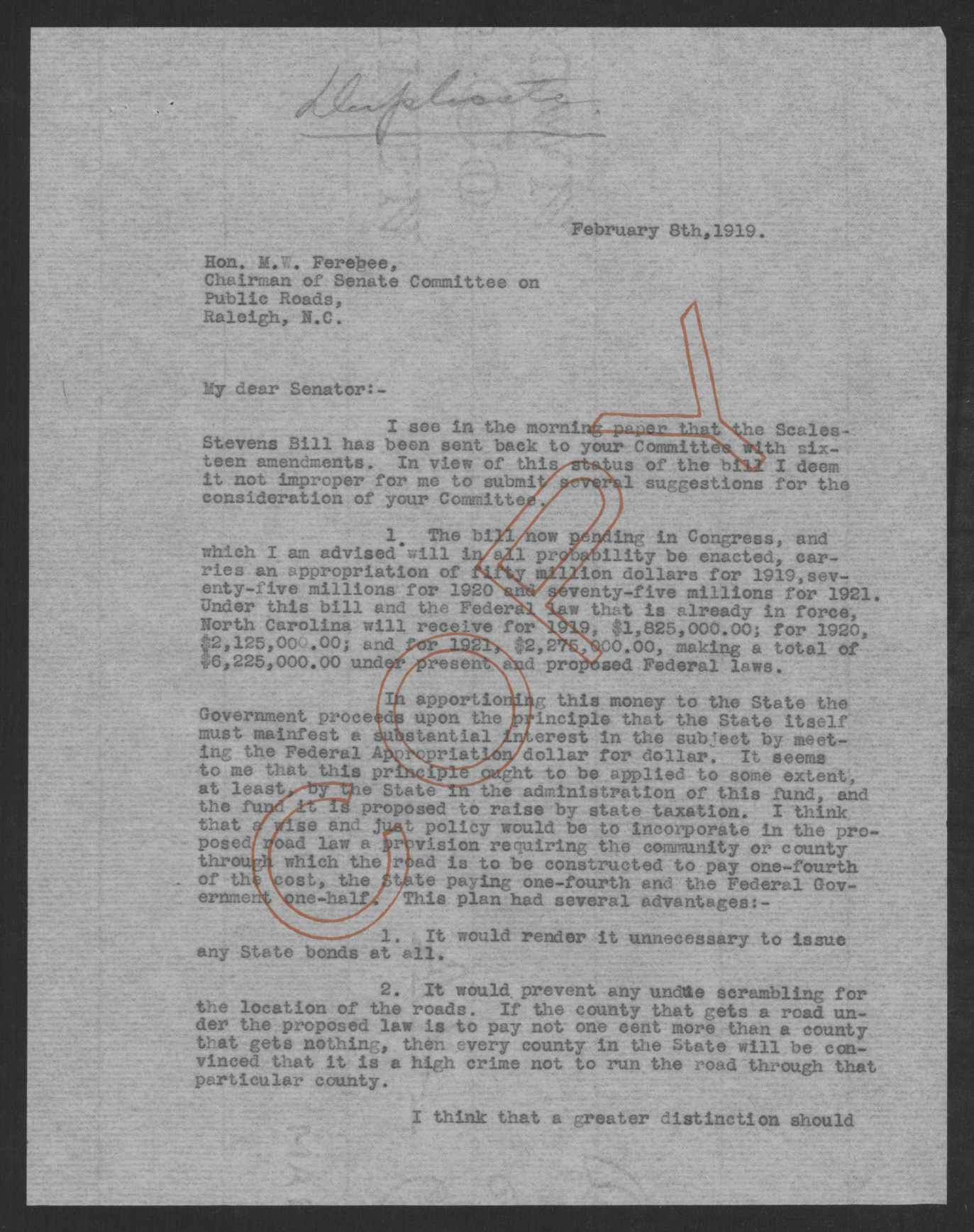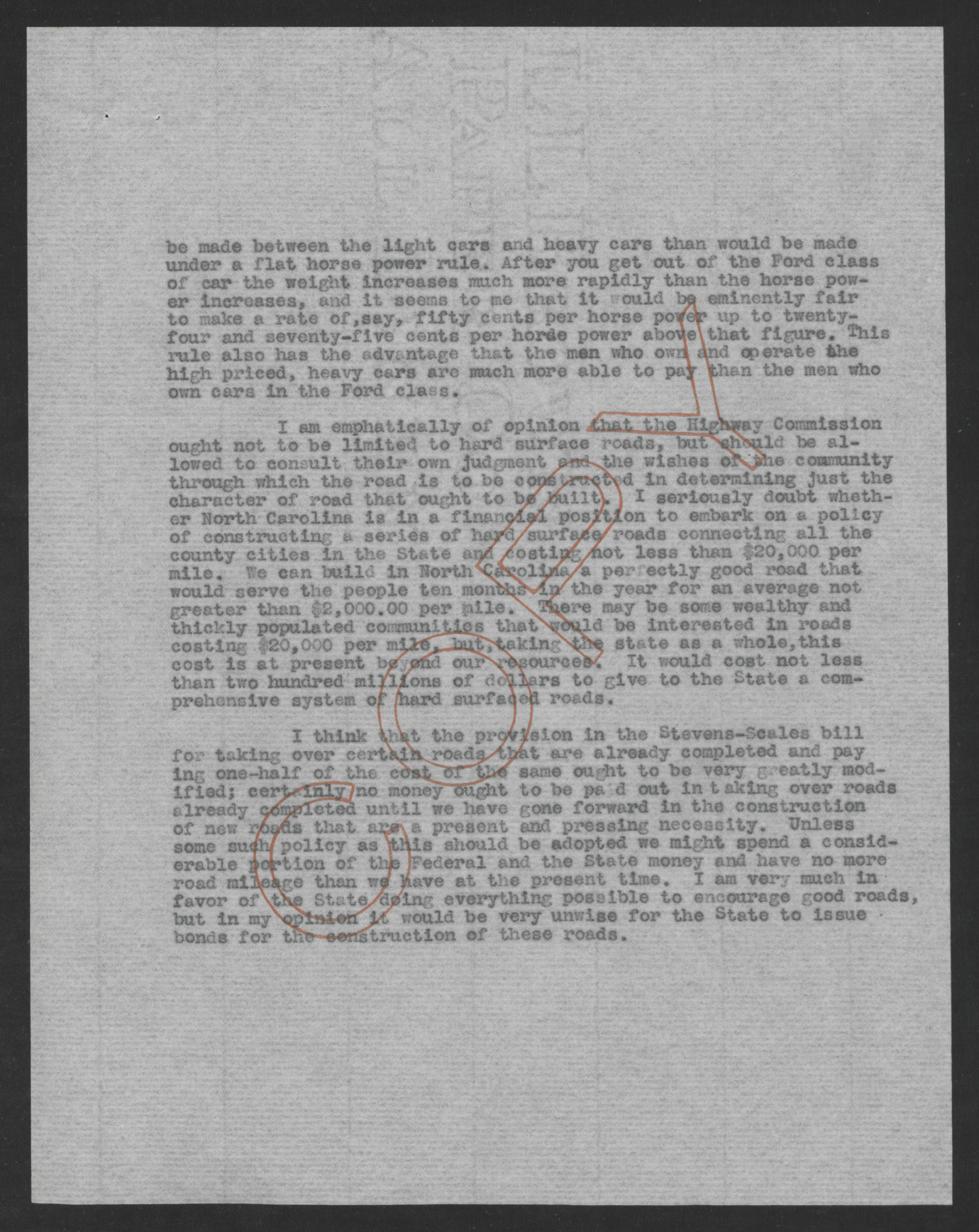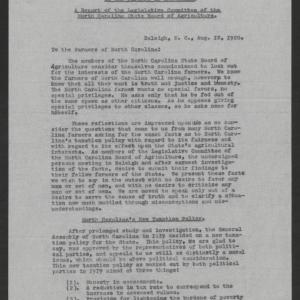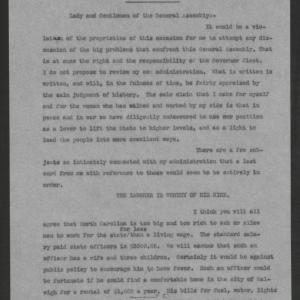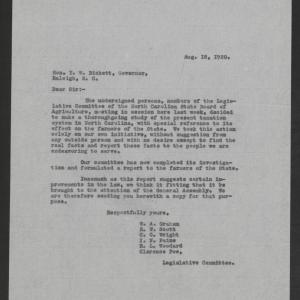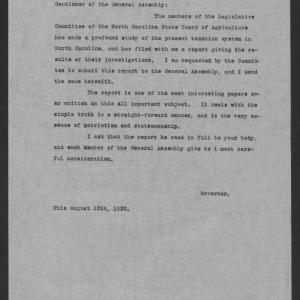Duplicate.
February 8th, 1919.
Hon. M. W. Ferebee,
Chairman of Senate Committee on Public Roads,
Raleigh, N.C.
My dear Senator:-
I see in the morning paper that the Scales-Stevens Bill has been sent back to your Committee with sixteen amendments. In view of this status of the bill I deem it not improper for me to submit several suggestions for the consideration of your Committee.
1. The bill now pending in Congress, and which I am advised will in all probability be enacted, carries an appropriation of fifty million dollars for 1919, seventy-five millions for 1920 and seventy-five millions for 1921. Under this bill and the Federal law that is already in force, North Carolina will receive for 1919, $1,825,000.00; for 1920, $2,125,000.00; and for 1921, $2,275,000.00, making a total of $6,225,000.00 under present and proposed Federal laws.
In apportioning this money to the State the Government proceeds upon the principle that the State itself must mainfest a substantial interest in the subject by meeting the Federal Appropriation dollar for dollar. It seems to me that this principle ought to be applied to some extent, at least, by the State in the administration of this fund, and the fund it is proposed to raise by state taxation. I think that a wise and just policy would be to incorporate in the proposed road law a provision requiring the community or county through which the road is to be constructed to pay one-fourth of the cost, the State paying one-fourth and the Federal government one-half. This plan had several advantages:-
1. It would render it unnecessary to issue any State bonds at all.
2. It would prevent any undue scrambling for the location of the roads. If the county that gets a road under the proposed law is to pay not one cent more than a county that gets nothing, then every county in the State will be convinced that it is a high crime not to run the road through that particular county.
I think that a greater distinction should be made between the light cars and heavy cars than would be made under a flat horse power rule. After you get out of the Ford class of car the weight increases much more rapidly than the horse power increases, and it seems to me that it would be eminently fair to make a rate of, say, fifty cents per horse power up to twenty-four and seventy-five cents per horse power above that figure. This rule also has the advantage that the men who own and operate the high priced, heavy cars are much more able to pay than the men who own cars in the Ford class.
I am emphatically of opinion that the Highway Commission ought not to be limited to hard surface roads, but should be allowed to consult their own judgment and the wishes of the community through which the road is to be constructed in determining just the character of road that ought to be built. I seriously doubt whether North Carolina is in a financial position to embark on a policy of constructing a series of hard surface roads connecting all the county cities in the State and costing not less than $20,000 per mile. We can build in North Carolina a perfectly good road that would serve the people ten months in the year for an average not greater than $2,000.00 per mile. There may be some wealthy and thickly populated communities that would be interested in roads costing $20,000 per mile, but, taking the state as a whole, this cost is at present beyond our resources. It would cost not less than two hundred millions of dollars to give to the State a comprehensive system of hard surfaced roads.
I think that the provision in the Stevens-Scales bill for taking over certain roads that are already completed and paying one-half of the cost of the same ought to be very greatly modified; certainly no money ought to be paid out in taking over roads already completed until we have gone forward in the construction of new roads that are a present and pressing necessity. Unless some such policy as this should be adopted we might spend a considerable portion of the Federal and the State money and have no more road mileage than we have at the present time. I am very much in favor of the State doing everything possible to encourage good roads, but in my opinion it would be very unwise for the State to issue bonds for the construction of these roads.
[unsigned]

